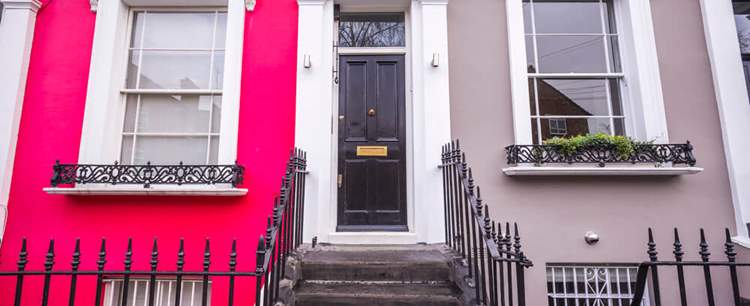News about the burgeoning property market continues to dominate the headlines.
Stories of note include accounts of the way rising property values in some parts of the country are outstripping income from salaries, record monthly sales figures and the strange phenomenon of real rent levels, despite rampant demand exceeding available supply.
So, let’s take a closer look at some of the property news headlines that caught our eye this week.
Is your home ‘earning’ more than your salary?
It is widely acknowledged that the UK is in the midst of a housing boom. A report in the Mail Online on the 15th of July painted that picture in stark relief when it revealed that a fifth of all homes have increased in value more than the increase in average local salaries.
Whereas the average annual income of an employee in Britain was £30,500 in 2020, two in every ten homes “earned” more than that figure by virtue of their capital appreciation.
In some parts of the country house price increases outstripped the rise in average incomes more markedly than others. In Hastings, East Sussex, for example, nearly two-thirds of the homes in the area increased in value at a greater rate than the current average local salary of £25,800.
Similarly high rates of capital appreciation in the value of homes in the past year were also recorded in the south east – notably, Adur in West Sussex and the Mole Valley in Surrey.
New data says private rents are falling in real terms
Despite a surge in the demand for let property and the relative shortage of supply, private rents have fallen in real terms, according to a press release by the National Residential Landlords’ Association (NRLA) on the 14th of July.
The NRLA cited the latest figures from the Office for National Statistics (ONS) showing that rents in the private sector rose by an average of 1.2% in the year to June.
Although there are several different ways of measuring the rate of inflation in the UK economy, even the most conservative puts this at 2.4% – double the increase in average rents, the value of which are therefore declining in real terms.
Far from exploiting the imbalance between supply and demand by simply increasing rents, the NRLA praises landlords generally for their restraint against the background of such market pressures.
Record monthly sales increase UK property prices further
June saw a surge in property transactions as buyers raced to meet the end of the Stamp Duty holiday at the end of the month, reported Property Industry Eye in an article on the 19th of July.
The article predicts that the final tally of property sales will achieve a record volume of transactions – probably peaking at around 800,000 sales and beating the previous record of 795,000 transactions in 2007. All this despite the fact that prices have risen by 6.7% in the past six months – and 0.7% in the period between mid-June and the early part of July.
According to the article, June marks the fourth consecutive month in which average house prices in the UK have reached new record levels.
Over 1.8m homes pushed into higher stamp duty bands
One of the consequences of soaring house prices is that more and more buyers will soon find themselves paying higher rates of Stamp Duty – especially when the recent tax holiday finally comes to an end in September, said the online listing website Zoopla on the 15th of July.
Introduced in July last year, the main impact of the Stamp Duty holiday expired at the end of June while the remaining element of relief will also come to an end in September.
The combined effect of the ending of the tax holiday and the relentless increase in the value of properties sold will result in an estimated 1.8 million transactions pushed into higher rates of Stamp Duty, argued Zoopla.
As from the end of September, Stamp Duty will be charged at the rate of 2% on the proportion of a property transaction between £125,001 and £250,000; 5% for the part between £250,001 and £925,000; 10% from £925,000 to £1.5 million; and 12% above £1.5 million.
Because of the general increase in house prices, more homes will move from the lowest rates of Stamp Duty into the 5% and 10% bands.
How to increase the value of your property
House values might be rising wherever you are in the country but, if you are selling, you’ll still want to secure the very best price for your home – and, in a piece on the 14th of July, Property Wire detailed some of the ways you can do just that:
Kitchen island
kitchen islands are all the rage and by adding one to your own home you could get up to £15,000 more for your property;
Replacement radiators
just by replacing the radiators in the living room, you could ask up to £10,000 more for your home, says Property Wire;
Bathroom – underfloor heating
by giving just your bathroom that extra level of warmth and comfort with underfloor heating could bring you an extra £10,000;
Ensuite bathroom
by adding an ensuite bathroom to the main bedroom – or, indeed, one of your other bedrooms – could achieve an increase in the value of your home by as much as £10,000; and
Doors upgrade
upgrade the quality of internal doors throughout your house and you might get up to an extra £7,500 on your asking price.
Some of these improvements clearly require an appreciable investment – not to mention building disruption to your daily life – but there are still others that involve relatively minor changes to achieve noticeable increases in value.







